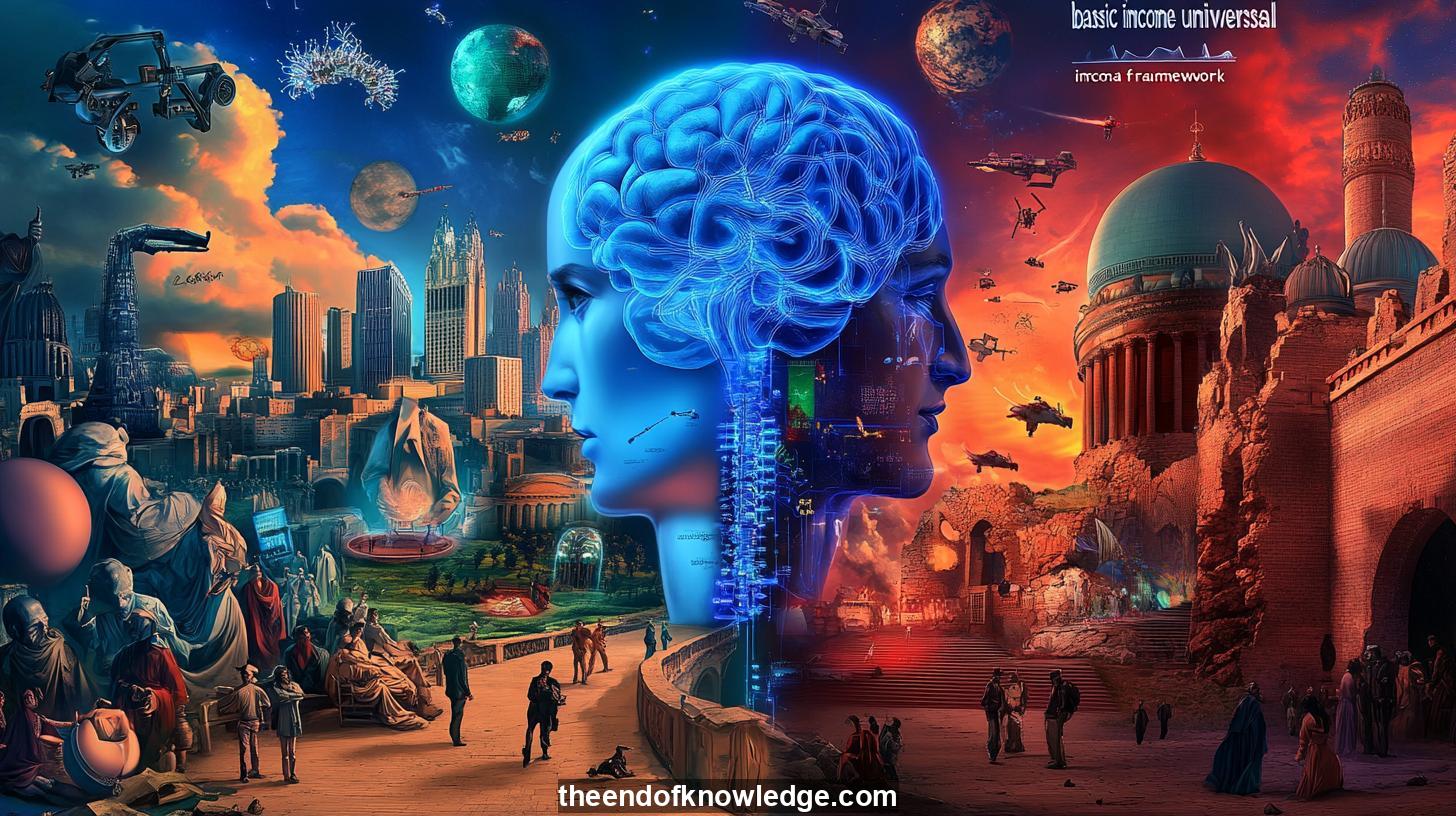 >
>
Concept Graph, Resume & KeyIdeas using DeepSeek R1 :
Resume:
The program discusses the concept of the "grand reset" and its implications on society, emphasizing the role of artificial intelligence (AI) in shaping the future. Speakers from diverse backgrounds share their perspectives on how AI is transforming industries, ethics, and human life. The conversation highlights the potential of AI to drive positive change but also raises concerns about its misuse, particularly in areas like surveillance, warfare, and economic inequality. The speakers explore the balance between technological advancement and human values, emphasizing the need for empathy and ethical considerations in the development and deployment of AI. They also reflect on the historical context of technological revolutions and the importance of preparing for a future where AI plays a central role. The discussion concludes with a call for collective responsibility and the need for a new philosophical framework to navigate the challenges and opportunities posed by AI.30 Key Ideas:
1.- The "grand reset" refers to a significant societal transformation, influenced by technological advancements like AI.
2.- AI is reshaping industries, from healthcare to warfare, raising ethical and moral dilemmas.
3.- The integration of AI into daily life challenges traditional systems and values.
4.- Speakers highlight the potential of AI to solve global issues but warn against its misuse.
5.- Economic inequality may worsen as AI benefits corporations more than individuals.
6.- The concept of universal basic income is discussed as a response to automation.
7.- AI's role in surveillance and control raises concerns about privacy and freedom.
8.- Ethical AI development requires balancing innovation with human-centric values.
9.- The influence of big tech companies in shaping AI policies is a growing concern.
10.- AI could lead to a new era of creativity and progress or a dystopian future.
11.- The need for a collective intelligence framework is proposed to guide ethical AI use.
12.- Historical technological revolutions provide context for understanding AI's impact.
13.- Empathy and human connection are seen as essential in a world dominated by AI.
14.- The future may involve a blend of human and artificial intelligence.
15.- AI's potential to extend human lifespan and enhance capabilities is explored.
16.- The ethical implications of genetic engineering and AI-driven enhancements are debated.
17.- AI could either exacerbate or mitigate global challenges like climate change.
18.- The role of AI in warfare and autonomous weapons is a critical concern.
19.- Speakers emphasize the importance of preparing for an AI-driven future.
20.- The discussion calls for a new philosophical framework to guide AI development.
21.- AI's impact on employment and the economy is a central theme.
22.- The balance between individualism and collectivism is reevaluated in the AI era.
23.- The potential for AI to create a more equitable society is explored.
24.- The risks of AI being used for mass control or manipulation are highlighted.
25.- The importance of diversity in AI development is stressed.
26.- AI's role in education and redefining work is discussed.
27.- The intersection of AI and human consciousness is a fascinating topic.
28.- Speakers reflect on the historical context of technological revolutions.
29.- The need for global cooperation in AI governance is emphasized.
30.- The program concludes with a call for responsible innovation and ethical awareness.
Interviews by Plácido Doménech Espí & Guests - Knowledge Vault built byDavid Vivancos 2025